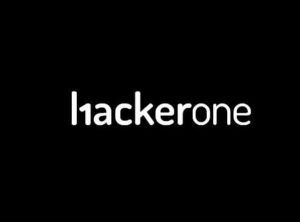CVE Alert: CVE-2025-11424 – code-projects – Web-Based Inventory and POS System
CVE-2025-11424
A vulnerability was determined in code-projects Web-Based Inventory and POS System 1.0. This impacts an unknown function of the file /login.php. Executing manipulation of the argument emailid can lead to sql injection. The attack may be performed from remote. The exploit has been publicly disclosed and may be utilized.
AI Summary Analysis
Risk verdict
High risk: remote, unauthenticated SQL injection on login.php with a publicly disclosed exploit makes automated abuse likely; patching should be prioritised.
Why this matters
An attacker could bypass authentication and access or exfiltrate sensitive data, modify inventory records, or interfere with POS operations. The impact spans data disclosure, integrity of inventory/transactions, and potential regulatory or reputational harm for exposed retail/OPs systems.
Most likely attack path
An attacker targets the emailid parameter in login.php to manipulate the underlying SQL query (AV:N, AC:L, PR:N, UI:N, S:U). With no user interaction required, an inexpensive, network-based exploit can probe or compromise the DB, enabling data theft or login bypass. Lateral movement potential exists only if other internal services rely on the compromised account or DB access; the vulnerability itself remains client-to-server at the web app layer.
Who is most exposed
Deployments of code-projects Web-Based Inventory and POS System, especially Internet-facing instances or those without strong input sanitisation, are at highest risk. Retail and hospitality networks using older 1.0 builds are typical patterns.
Detection ideas
- Look for requests to login.php with anomalous emailid payloads (e.g., tautologies, UNION SELECT, comment-based injections).
- Increased login-page error messages or DB error traces in responses.
- Spikes in authentication bypass attempts or unusual successful logins following failed attempts.
- Web app firewall/IDS alerts for SQLi patterns targeting login endpoints.
- Logs showing repeated, automated scanning from diverse IPs hitting the login page.
Mitigation and prioritisation
- Apply vendor patch or upgrade to fixed version immediately; verify in staging before production.
- Enforce parameterised queries/prepared statements and robust input validation on login.php.
- Implement WAF rules to block SQLi payloads targeting login endpoints.
- Restrict access to the login page (IP allow-list, MFA on login, rate limiting).
- Establish a change-management plan with a quick rollback if issues arise; monitor post-deployment for signs of exploitation.
A considerable amount of time and effort goes into maintaining this website, creating backend automation and creating new features and content for you to make actionable intelligence decisions. Everyone that supports the site helps enable new functionality.
If you like the site, please support us on “Patreon” or “Buy Me A Coffee” using the buttons below
To keep up to date follow us on the below channels.


![[DRAGONFORCE] - Ransomware Victim: Cofiex Asesoría de Empresas, S[.]L 4 image](https://www.redpacketsecurity.com/wp-content/uploads/2024/09/image-300x300.png)
